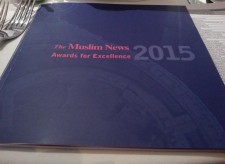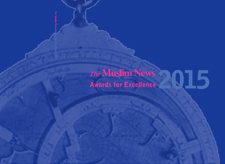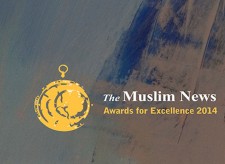A 14-year-old British girl was cryogenically frozen in Cryonics Institute in Oak Park, Michigan after her death from cancer (Photo: Creative Commons)
Abdulaziz Sachedina
“A 14-year-old girl has become the first British child to have her body frozen in the hope of being brought back to life following a landmark legal ruling.” (The Times, London, November 18, 2016). The case of fulfilling the last wish of the schoolgirl to receive cryonic preservation procedure in the hope of being revived in future to receive treatment for her rare form of cancer has raised serious questions about the moral-legal validity of such a ruling by Mr Justice Jackson.
Before I move on to explain the moral/religious dimensions of the issue, it is important for us to remind ourselves that a missing dimension of the journalistic treatment of the case revolves around the breakdown of human relations in modern societies everywhere.
My attention was drawn to the fact that the girl had not seen her father for eight years. When sudden illnesses occur in the family it is the parents who provide an environment of hope for the loved ones. Contextual aspects of the case reveal unrealistic expectations arising when the actual link, the father, who could have spent time with the daughter was missing. Otherwise, why would anyone entertain the wishful thinking of returning to complete the life cycle after an undetermined hibernation?
As a volunteer hospital chaplain I encounter such cases of hopelessness all the time; but rarely, have I come across unrealistic wish of returning to life to enjoy it under better personal circumstances.
There is no legal-ethical precedent to support an extrapolation of such an incongruous judicial decision, wholly based on emotive expectation generated by modern medical advancements. It is not inaccurate to suggest that in medical annals such journalistic sensationalism about the prolongation of life expectancy cannot be sustained in view of ineffectual medical promise in the entire history of humankind. In the modern context, we have ruled out that medical research can perform such a “miracle” of bringing back to life a patient from cryonic preservation. Such a possibility would have ushered pouring of enormous funding for longevity studies and research in some affluent societies.
End of life decisions have been controversial since the introduction of life-prolonging technology that has kept terminally ill patients alive for much longer period than was possible in the past. Large investments have been provided to find cures for incurable and genetically transmitted diseases in the hope of fulfilling the dream of eternal life on earth. The cost of such advancements has not provided satisfactory returns because prolongation of healthy life is certainly different matter. Consider the likelihood of being admitted in mushrooming senior nursing homes around the world to face the loneliness and depression.
Cryonic preservation has been known to healthcare institutions for some time now; and, yet, in all probability, no such wish to hibernate indefinitely has been legally granted thus far.
The British school girl spent a lot of time investigating cryonics before she wrote her letter to Mr Justice Jackson. Ironically, instead of consulting with the experts in the field of neuroscience to assess the challenges facing the medical research to deliver life after hibernation, the judge issued his out of place ruling. Isn’t that ruling a disservice to the patient and her mother, who believing in such a possibility, instead of nurturing thousands of dying children around the world, invested a large sum of money in cyber-preservation in the US after clinical death?
Religious and moral dimensions of the Cryonics
With a strong commitment to justice and fairness in allocating limited health care resources that are available to the average person on earth, all Abrahamic traditions (Judaism, Christianity, and Islam) are bound to question the granting of cryonic preservation on ethical grounds. The rule of “proportionality” (tanasub) affords Muslim ethicists, at least, rational grounds to study the case with greater scrutiny. First of all, in Islamic legal ethics, upheld by all the Sunni and the Shi’a jurists, “doubt cannot erode certainty.”
Ostensibly, the future promise of cryonic preservation of the body after death is still in making; whereas death has occurred with certainty. Probably, cryonic preservation could have been justifiable if there was certainty about its success. The neuroscientists are not divided on the issue since thus far the theoreticians of cryonics have concentrated on deciphering the configuration of the frozen brain with its lifetime of memories, thoughts, and feelings: If brought to life, would it resume functioning with its consciousness that was present at the moment of death?
Regardless of what the cryonic research achieves at the end, the moral-spiritual question that Muslims need to ask is informed by another juridical principle: “prioritization” (talazum) of obligations: Is there any correlation between wishing and the last will? Can one wish for something fanciful and leave it as an obligation or even recommended burden on one’s family to fulfill it? In life and death in Islam, all Muslims believe that God has determined the best for humanity. The assumption here is that God is the most merciful and most compassionate to provide that which is beneficial to humanity. Even death is praised in the Muslim scriptures as part of the divine plan.
Today, as we are all being made aware constantly, there is suffering and affliction all around the world. The media has sensitized us to realize the painful reality of incurable illnesses and humanly inflicted pain and death. No human person can afford to be indifferent to the pain and suffering of the children and innocent bystanders in conflict-ridden areas of the world.
We are part of the large global family that is challenging us to do more about alleviating poverty and diseases that afflict little children. When will the religious leaders call for the ethics of human relationships, especially in the context of social malaise of indifference towards one another? The predominant principle of “No harm, no harassment,” in Muslim interpretive jurisprudence demands that each case of moral dilemmas, like the one we are dealing with today, is scrutinized in the scale of justice and service to humanity. Aren’t we causing harm to the social fabric that requires us to be critical of the breakdown of sincere, sensitive, caring, and generous relationships in modern societies?
Abdulaziz Sachedina is Professor of and Endowed IIIT Chair in Islamic Studies at George Mason University in Fairfax, Virginia, USA. Sachedina is an author and one of his many books include Islamic Biomedical Ethics: Theory and Application (Oxford University Press, February 2009).

















